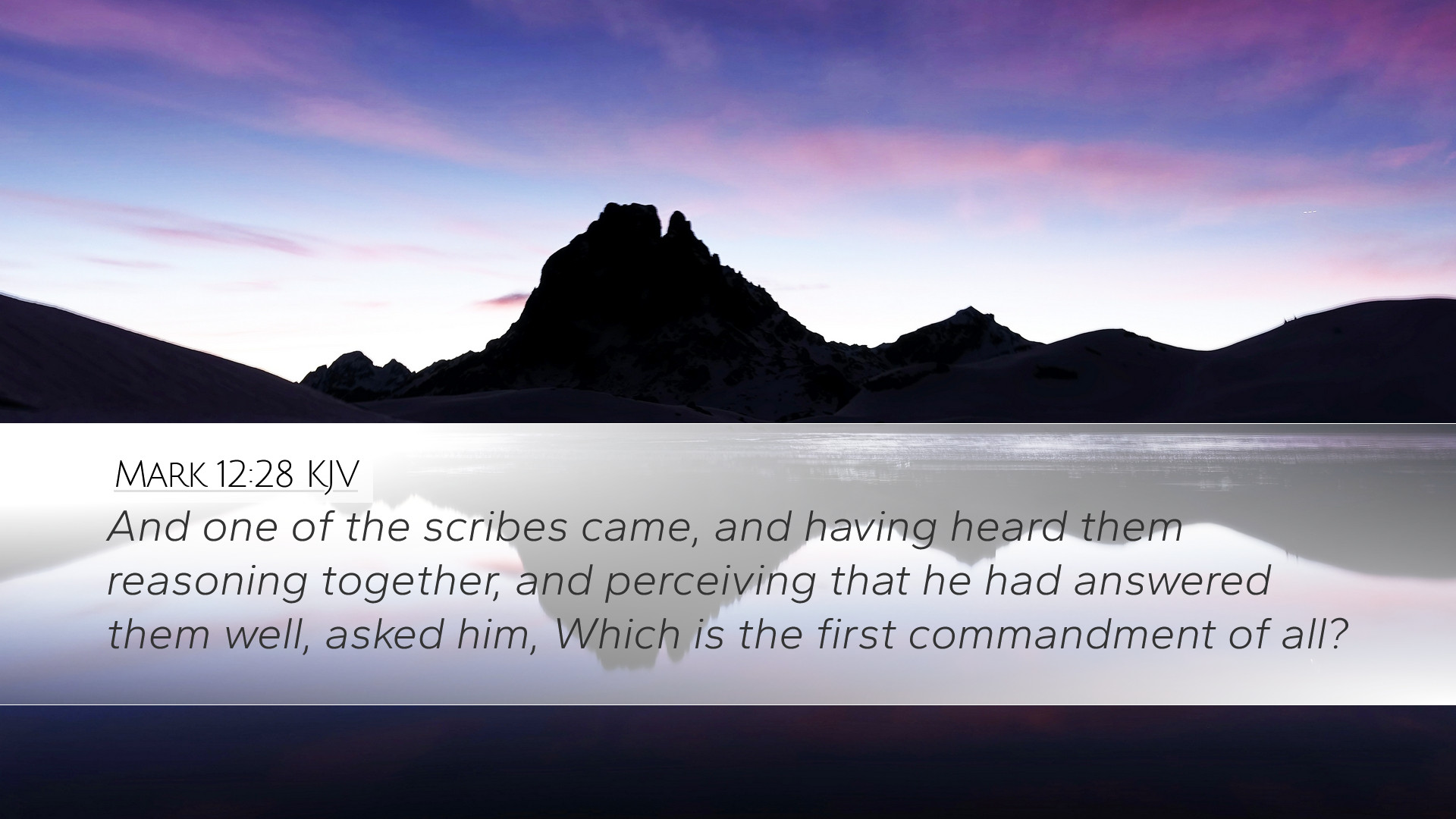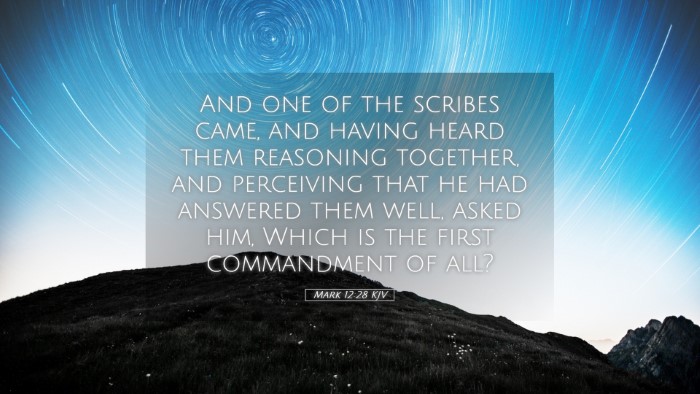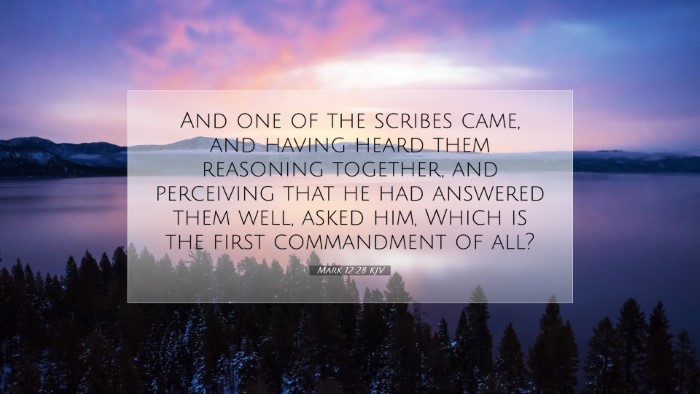Old Testament
Genesis Exodus Leviticus Numbers Deuteronomy Joshua Judges Ruth 1 Samuel 2 Samuel 1 Kings 2 Kings 1 Chronicles 2 Chronicles Ezra Nehemiah Esther Job Psalms Proverbs Ecclesiastes Song of Solomon Isaiah Jeremiah Lamentations Ezekiel Daniel Hosea Joel Amos Obadiah Jonah Micah Nahum Habakkuk Zephaniah Haggai Zechariah MalachiVerse
Mark 12:1 Mark 12:2 Mark 12:3 Mark 12:4 Mark 12:5 Mark 12:6 Mark 12:7 Mark 12:8 Mark 12:9 Mark 12:10 Mark 12:11 Mark 12:12 Mark 12:13 Mark 12:14 Mark 12:15 Mark 12:16 Mark 12:17 Mark 12:18 Mark 12:19 Mark 12:20 Mark 12:21 Mark 12:22 Mark 12:23 Mark 12:24 Mark 12:25 Mark 12:26 Mark 12:27 Mark 12:28 Mark 12:29 Mark 12:30 Mark 12:31 Mark 12:32 Mark 12:33 Mark 12:34 Mark 12:35 Mark 12:36 Mark 12:37 Mark 12:38 Mark 12:39 Mark 12:40 Mark 12:41 Mark 12:42 Mark 12:43 Mark 12:44

